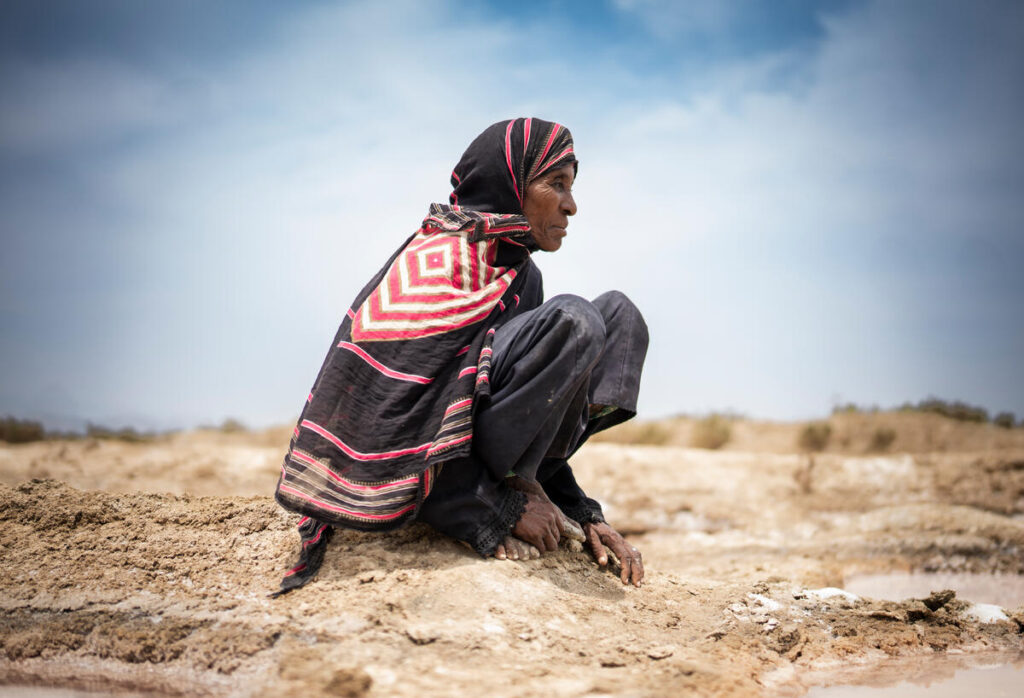WFP Chief and COP28 President Call for Urgent Climate Action to Reduce Rising Humanitarian Needs

ROME – Today, Cindy McCain, the executive director of the United Nations World Food Programme (WFP), and Dr. Sultan Al Jaber, the president of the UN Conference on Climate Change (COP28), called for urgent action to scale up climate action in fragile and conflict-affected settings.
Their call comes ahead of the COP28 Declaration on Climate, Relief, Recovery and Peace which will seek transformative measures on the frontlines of the climate crisis and will be officially launched on December 3 at COP28.
The Global Stocktake, the first report card on the Paris Agreement, has shown that the world is coming dangerously close to permanently passing the critical 1.5°C degrees limit of global warming and the repercussions are being felt in every region of the world, with the most fragile areas impacted the most.
“Many of the world’s most fragile countries are those most impacted by climate change. Already ravaged by conflict, insecurity and poverty, climate change is an accelerator of humanitarian needs. The result is more hunger, more poverty, more insecurity and more migration,” said McCain. “Most of these places contributed almost nothing to climate change yet are paying the highest price. The world must come together to support those on the frontlines of this crisis – anything less is simply unacceptable.”
In fragile and conflict-affected settings, extreme weather events affect three times as many people annually compared to other countries. Despite this, people living in extremely fragile states receive a fraction – up to 80 times less – of climate finance compared to those in non-fragile states.
Whilst lifesaving assistance following climate-related disasters is crucial, it is equally imperative to prepare and build resilience, to break out of the vicious cycle of crisis and response, particularly at a time when the humanitarian system is struggling to keep up with the pace of escalating crises. More financing must be directed to communities and countries for initiatives such as disaster preparedness and anticipatory action, as well as strengthening local systems and supporting small-scale farmers to shield those most exposed to climate shocks.
“The COP28 Presidency is deeply committed to putting the lives and livelihoods of people at the center of its efforts,” said Al Jaber. “COP28 will be the first COP to dedicate a day to Climate, Relief, Recovery and Peace. Climate change affects all humanity but not everyone equally.”
“As the most inclusive COP to date, we will provide a platform where all voices are heard, and no one is left behind. We are making this a priority and are calling upon all governments, private sector and regional and international organizations, to support this cause by endorsing the declaration and committing to enhanced financing, capacity strengthening and partnerships,” Al Jaber added.
The COP28 Declaration on Climate, Relief, Recovery and Peace is currently garnering endorsements from governments, international and regional organizations, international financial institutions, philanthropic entities and climate, environment, development, humanitarian and peace actors. It seeks to make a collective commitment to increase climate action, investment and absorption capacity in countries and communities affected by conflict or protracted humanitarian crisis, as well as present an accompanying package of finance, policy, programs and practices to operationalize the commitment.
# # #
The United Nations World Food Programme is the 2020 Nobel Peace Prize Laureate and the world’s leading humanitarian organization, saving lives in emergencies and using food assistance to build a pathway to peace, stability and prosperity for people recovering from conflict, disasters and the impact of climate change.
Follow us on Twitter @WFPUSA and @wfp_media




